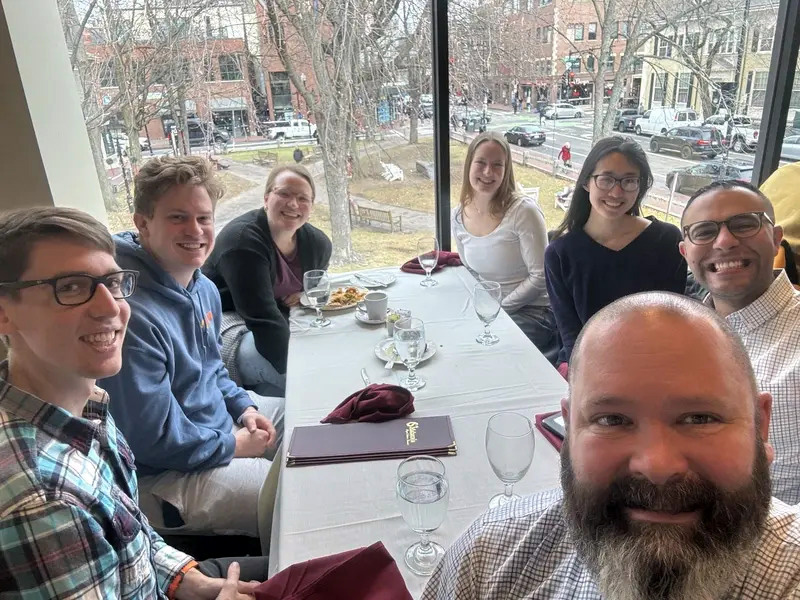University Leadership Ministry Helps Students Develop a Robust Christian Worldview
written by christian union; edited By erin conner
As the Judeo-Christian worldview has receded in modern Western society, nihilism, atheism, secularism, post-modernism, and a resurgent paganism now present competing paradigms for explaining the meaning of life and our purpose here on earth. Bifurcation of facts from values has contributed to the identity dysphoria endemic to the dislocation of self in society that troubles many young people today. Issues related to sexual “empowerment” and individual gratification dominate public policy debate, even as our nation’s values related to life, liberty, and the pursuit of happiness find new definition in the reshaping of longstanding positions on private and public morality.

Perhaps most Christians give little consideration to the formation of a Christian worldview. With the present cultural emphasis on diversity and inclusiveness, many are skeptical that any one paradigm for explaining life is better than another; everything, it is suggested, is just a matter of perspective. Besides, paradigms, so it is argued, are primarily seen as a form of power through which an individual or society seeks to suppress and subjugate others. The thought of a meta-narrative that explains the meaning of existence and reality in a definitive and authoritative manner is considered archaic and often rejected as an outright impossibility.
But even with public recognition and acceptance of the presence of the Christian Church within Western society, opinions differed on how to embody a “Christian worldview.” Medieval Christians viewed state and church as a unified whole; the Pope is vicar of the earth and monarchs are not absolute in their authority but ultimately beneath the papacy in empowerment. By the time of the Protestant Reformation, some Christians viewed the State in a supportive but not directive role in relation to the Church; others felt the state was there to enforce Christian morality and prevent doctrinal declension. Still others felt that exercise of a Christian worldview meant a form of personal pacifism and withdrawal from society in the interests of preserving Christian morality in the home and separated community. Church and state were separate and distinct, and the latter was not to be intrusive of the former for defining its membership and regulating its order.
While emphases varied among professing Christians in how best to honor Christ as a citizen and member of the Church, each in their own way attempted to rethink life in light of the coming of Christ and the words of the Lord’s Prayer, “Thy kingdom come, thy will be done.” In other words, the kingdom priorities that Christ taught his disciples to learn and pray remain the same standard by which we must live our lives and learn how to conform all our actions, whether in the private or public arena.
Influential German theologian Klaus Bockmuehl once recounted the impact of a radio interview he heard when a distinguished Christian leader was asked in the final fifteen seconds of the program how he would sum up the purpose of his life.
What answer would you give if you had only fifteen seconds to respond?
The respondent’s answer was brief but pungent: “Thy kingdom come, thy will be done.”
Can we say that God’s priorities and kingdom are what we have committed our lives to? That the doing of God’s will–acting in love, joy, peace, patience, kindness, gentleness, goodness, faithfulness, and self control– for example, matters most to us each day? That seeking the advance of His kingdom is the first priority of our lives?
Christ gives us and example and instructions to follow for accomplishing this in our lives.
The formation of a Christian worldview is ultimately rooted in a Christian’s relationship with God. The Bible teaches that our nature, by virtue of physical birth, is one of spiritual death and alienation from God. But when a person is born again, a new nature is created in him or her by the Holy Spirit. As the Apostle Paul notes, if a person is “in” Christ, the old has passed and the new has come. In other words, every believer is a “new creature” in Christ. Our ability to abide in Christ is nurtured through such means as reading Scripture, prayer, fasting, fellowship, and other spiritual disciplines. By such “means,” a believer, if yielded to Christ, can experience the transformative and sanctifying power of God to grow in Christ-like character, to produce the fruits of the Spirit in their lives, and to be equipped for every good work.
Formation of a Christian worldview begins with formation of our new nature or the new birth. But cultivation of a Christian mindset remains the work of a lifetime as we grow in maturity and wisdom, learning how to choose between what seems right and good and what actually is according to God, as we seek to honor and reveal Christ in thought, word, and deed.
“If you love me,” Jesus said, “you will keep my commandments” (John 14:15). Following God’s standards for living is now possible through the Holy Spirit’s empowerment, enabling believers to live a fulfilling and effective life. Godly character can flourish because when we are living as designed, we are not providing an opportunity for the devil to gain a foothold in our lives. Moreover, obedience to God enables believers to find their greatest delight and satisfaction in God himself. Lastly, obedience to God enables believers to effectively fulfill their purpose here on earth.
For over two decades, Christian Union has been honored to help students at highly secular and influential universities find reconciliation with God through faith in Christ and develop a robust Christian worldview.
Learn more about How Your Worldview Affects Your Life | Dallas Willard.



